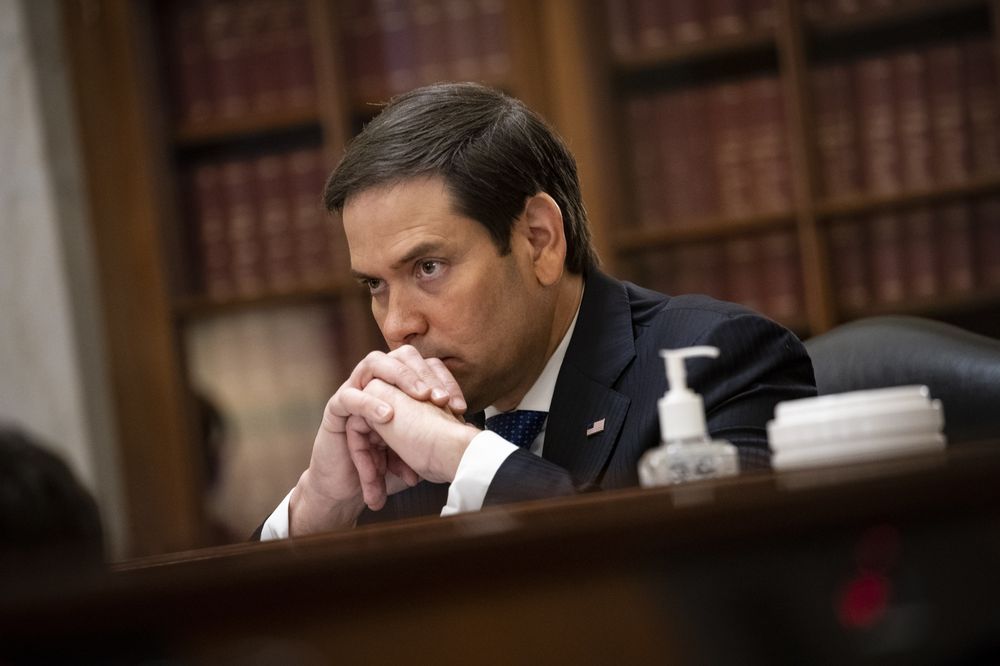United States Senators push for religious and democratic freedom among Chinese citizens by proposing the granting of refugee status to Hong Kong residents.
A bipartisan group of U.S. senators are backing legislation that would immediately grant refugee status to Hong Kong residents. The Hong Kong Safe Harbor Act, introduced in both chambers of U.S. Congress, would involve the granting of refugee status to certain citizens of Hong Kong. Citizens of the semi-autonomous Chinese city have been protesting for democratic and religious freedom for more than a year. The mainland Chinese government has not taken these protests lightly, and Hong Kong authorities have deployed brutal police tactics and other methods of suppression in attempts to stop the protests from growing.
The refugee status bill is being proposed by Senators Marco Rubio (R-FL) and Todd Young (R-IN) and is sponsored by Menendez (D-NJ), Ben Cardin (D-MD) and Jeff Merkley (D-OR). The goal behind this legislation is to grant priority refugee status and waive immigration intent as a consideration in granting non-immigrant visas to Hong Kong residents who participate in peaceful protests against the Chinese government.
In recent national legislation, the government in Beijing has adopted new national security laws that asserts new levels of power over Hong Kong in order to stop critics of the regime.
The national security laws bring new punishments and limitations that were previously not present for protestors. According to the new laws, crimes of “secession, subversion, terrorism and collusion with foreign forces are punishable by a maximum sentence of life in prison”. This law has seemingly been created specifically to target protestors, with the Beijing government now designating damage to public transport facilities as an act of terrorism. During protests, Hong Kong protestors inadvertently caused damage to city buses, commuter train stations, and other facilities.
In addition to these restrictive laws, the Beijing legislation allows for Hong Kong to establish its own national security commission to enforce the new laws. This national security commission will contain a Beijing-appointed adviser. In effect, the national security commission is a puppet of the mainland party. This advisor would carry out the wishes of the mainland, effectively undermining Hong Kong autonomy.
According to the new Chinese law, Hong Kong’s chief executive now has the power to appoint judges to hear national security cases. The election behind the chief executive is often heavily influenced by Beijing and the Chinese government; it does not involve full citizen voting and democratic freedom. Opposition figures in Hong Kong assert that the territory’s chief executive is simply a puppet of the Chinese government. Because the chief executive has the power to appoint judges, Beijing now has the power to decide on how law should be interpreted.
Finally, citizens in Hong Kong now are subject to intense surveillance techniques under the new national security laws. People suspected of breaking the law can be wire-tapped and put under physical surveillance without their knowledge. Also, the law announced that some trials in Hong Kong will be held behind closed doors. These trials will not allow for press coverage or the cases to be under the public eye. Given that the Chinese government has recently increased crackdowns on unregistered Christian churches and other religious establishments, implementation of these surveillance tactics could mean trouble for practicing Christians.
If passed into law, the Senate legislation would mean that the United States is actively taking steps to preserve the religious and democratic freedoms of Hong Kong citizens.
The Trump Administration has recently placed numerous sanctions on the Chinese government and state officials because of both trade disputes and human rights abuses. It also has the ability to cut Chinese military industries from raising funds on U.S. capital markets. But the U.S. can also aid needy citizens by offering them a safe haven. Under the proposed legislation, the granting of emergency refugee status would allow individuals to flee from the oppression of China. This would allow the Chinese Christian community to flourish without the fear of potential incarceration by the Chinese government.





Comment by Lee Cary on July 16, 2020 at 7:51 am
Will require strict screening process. And not just for the virus.
Comment by Michael McInnis on July 16, 2020 at 11:15 am
This is the right thing to do for the free people of Hong Kong. I hope our government moves quickly enough (along with the govts. of Taiwan, Australia, England and others) to help people leave before it’s too late.
China (the CCP, NOT the Chinese people) continues to ignore their treaties and agreements – no shock there – but in doing so, they give other nations the right and motivation to set more people free.
Comment by MJ on July 16, 2020 at 3:45 pm
Don’t get me wrong. I support giving refugee status to those fleeing Hong Kong. But why after drastically reducing the numbers of refugees fleeing from deadly oppressive regimes everywhere else are we suddenly interested in accepting refugees from Hong Kong?
Comment by Anneke on July 16, 2020 at 9:18 pm
Most of them are well-educated and have skills useful to the US.
Comment by binkyxz3 on July 20, 2020 at 12:52 am
Hispanics made a mockery of the refugee process, claiming it when it did not apply. The system is clogged with useless scum and as result good people will suffer.
Comment by Michael McInnis on July 16, 2020 at 4:55 pm
I suspect (right or wrong) it’s partly to poke Ji Xingping for China’s lawlessness vis-a-vis stolen technology and other information and the careless release of the Wuhan virus on the world.